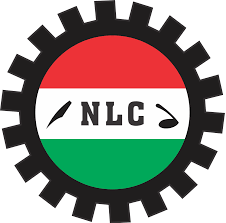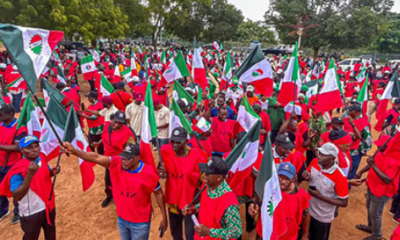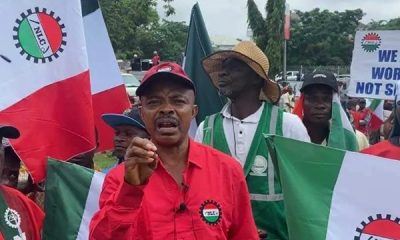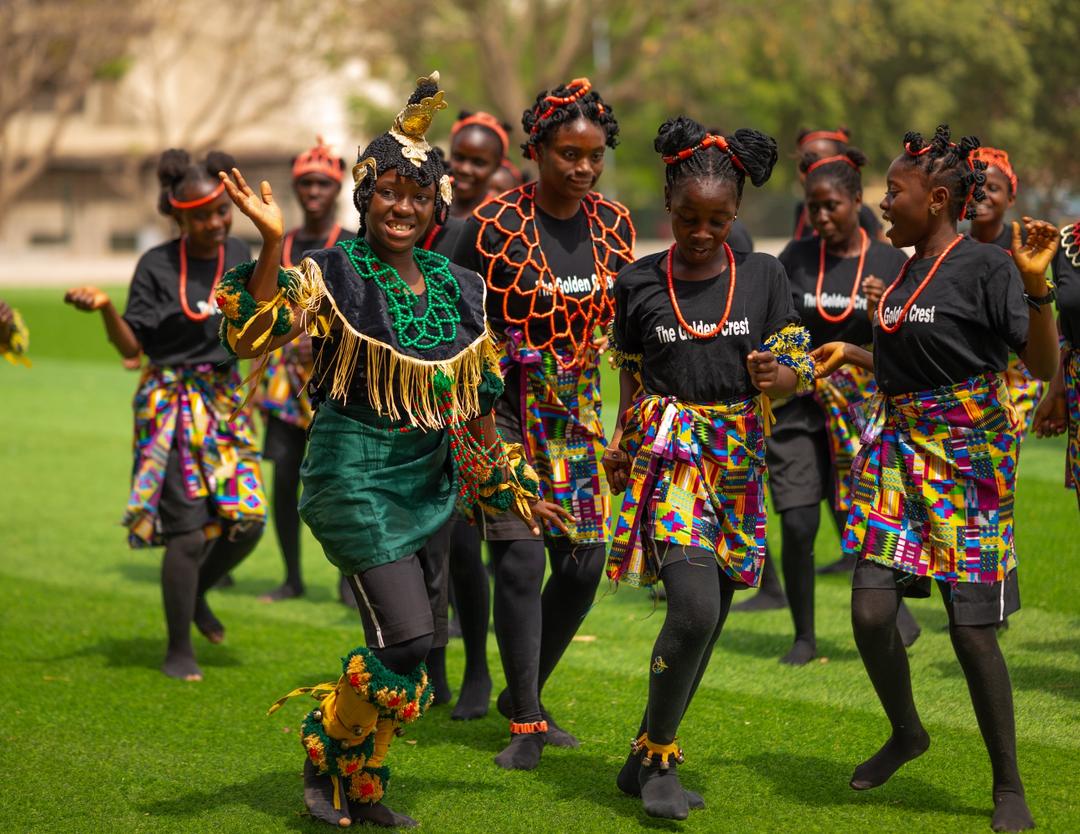society
NLC/TUC STRIKE, IN WHO’S INTEREST?
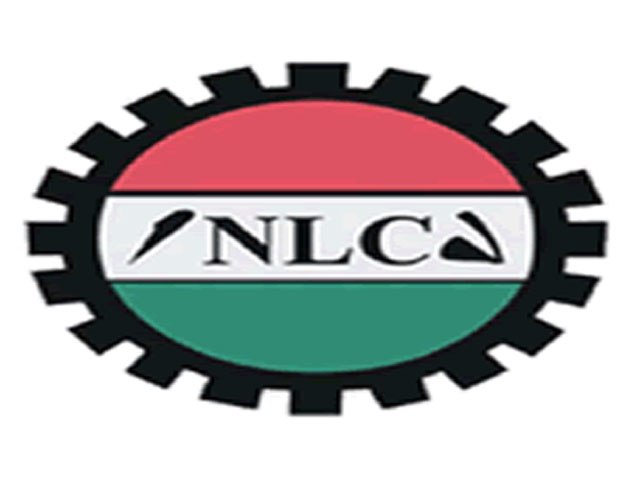
NLC/TUC STRIKE, IN WHO’S INTEREST?
Barring last minute change of decision by the organized labour unions in obeisance to the restraining court ruling on its strike, the Nigeria society from the 3rd of October 2023 might witness another round of industrial unrest as championed by the NLC/TUC arising from their national executive council meeting, in reaction to the federal government response to the aftermath of the fuel subsidy removal on the Nigerian worker.
Before we proceed in this exercise, it is important for us to situate the issues in proper perspectives for understanding and clarity of purpose. However, in doing so, one is not oblivious of the fact that sentiments and emotions might becloud the reasoning of some persons whose only idea of objectivity, truth and pro people, is if one takes or support positions against government actions or policies in the absence of rationality, fact and logic. Nevertheless, we are unmoved and cannot be cowed from expressing our views on national issues which is a fundamental human right, no matter whose ox is gored.
On the issue of fuel subsidy removal, it’s an indisputable fact that Nigerians are collectively on the same page over the removal of this virus that has ravaged the Nigerian economy to our collective detriment and which must be exterminated to allow the economy and Nigerians breathe.
It is not in doubt that strike action by labour unions is one of the legitimate instruments employed to ventilate its grievances to employers or government over work conditions. From that premise, the resort to strike is a legitimate and fundamental right of the worker or workers which is indisputable and non-negotiable.
In addition, an indisputable truism is that strike action is a serious business that ought to be employed as a last resort and must not be turned into a blackmailing tool, else it becomes trivialized and loses its cherished import.
As regards the threatened latest round of strike by the organized labour, the question that should bother any discerning mind, is in whose interest is this strike?
One recollects that immediately after the presidential pronouncement of the removal of fuel subsidy, Mr. President also made a public announcement of the need to effect a positive change in the welfare of the Nigerian worker in line with economic reality and to put in place measures to ameliorate the conditions of not only the working class but the generality of Nigerians in the immediate and long term through the retooling of the economy for national prosperity.
Thus, following the removal of fuel subsidy and the attendant economic distortions, the federal government constituted a committee comprising representatives of the federal and states governments, the organized private sector and the organized labour to come up with recommendations on the way forward with regards to the economic conditions of the working class population.
Even while the constituted committee was work in progress, we are all living witnesses to the palliatives programmes of states governments like Kwara, Ogun, Edo, Lagos, Bornu, Oyo, etc who came up with policies such as reducing the official working days from 5 to 3, award of N10, 000 per month to workers, reduction of transport fares in BRT buses, purchase and deployment of mass transit buses at subsidized boarding costs among other relief measures to cushion the impact of the fuel subsidy removal.
In the midst of the economic dislocation and inconvenience caused by the removal of fuel subsidy which was expected and affecting all strata of the society, as a way forward, the federal government relinquished and decentralized some aspects of the distribution of the relief measures or palliatives to states governments and it’s a fact, that we are living witnesses to the distribution of the palliatives in some states of which we have seen reportage in the media, but in some others, we are in the dark about what is being done, but it is expected that in due course, all the states governments will be made to render account of stewardship in this regard.
One must also add that in Lagos State, where yours sincerely lives, one has experienced as an eye witness, distribution of palliatives not only by the state government, but also by local government council and local development council areas administrations.
Even as Nigerians battle the economic hardship which is a global phenomenon, the organized labour at every turn of its engagement with the federal government on the aftermath of the removal of fuel subsidy, threatened going on strike, went on a one day strike and rally and later, on a 2 days strike and public rally to ventilate it’s anger over the plight of workers and it’s disapproval of government response to the issue of the palliatives and other matters.
However, an aspect of the labour statement on why it is going on strike is its claim that it’s action is because of the suffering of the generality of the Nigerian people over the removal of fuel subsidy, which needs to be examined to determine the truth.
This statement in view of our present economic circumstances looks more like an attempt to pull wool over the eyes of Nigerians who have become traumatized by the broken record threat of strike by the organized labour at the slightest opportunity. That the Nigerian people are going through a lot because of the economic hardship is not in doubt, but the present situation though painful, is one in which the people have exhibited patience and understanding and are only looking for relief rather than the pains which the proposed strike portends.
So one wonders why the organized labour is trying to deflect from the truth that the primary focus of its present agitations at the federal level is the interest of federal workers which is legitimate and in order? In sincerity, one might be safe to assume that workers at the state and local government levels don’t need to be part of this strike, because some of the palliatives which the federal workers are clamouring for through the organized labour, is already being enjoyed in the states even by the federal workers too, save for wage issues which is a national matter and is already being looked into by the tripartite committee.
But this is not to assert that the society as a whole has not benefitted from the struggles of the organized labour in the past, absolutely not. Infact, we must commend the organized labour for its sacrificial role in nation building which is indelible and must continue to constructively engage with this institution of national unity for our collective benefits.
But on this planned strike, we must affirm that it is not in the best interest of the generality of the Nigerian people and her economy that will be at the receiving end of this action. At the moment, over 80% of our working population are in the informal sector where they live on daily earnings, without which, it will be economic catastrophe and so we ask, how will the interest of this mass of our population and their dependents be ameliorated by an indefinite strike? Also if workers go on strike, the economy that is being retooled for optimal governmental responsibility will be deprived of the expected returns of the retooling process for the good of the people.
As at the last count, the organized labour went on a 2 days warning strike between September 5th and 6th 2023, the effect of that strike on individuals, businesses and the economy was incalculably in the negative in all ramifications.
If the ideals of labour is to create wealth for a better and prosperous society for all, then the planned indefinite strike needs to be rethinked, shelved and the federal government given more time to engage with labour on all the issues.
Therefore, without doubt, the proposed indefinite strike by NLC/TUC is not in the interest of Nigerians and Nigerian workers.
God bless the Federal Republic of Nigeria.
Thank you.
Yours Sincerely,
E-signed,
Nelson Ekujumi,
society
You Against Crime Founder Tayo Folorunsho Praises Winners of Abuja Schools Festival.

You Against Crime Founder Tayo Folorunsho Praises Winners of Abuja Schools Festival.
Abuja, Nigeria – The maiden edition of the You Against Crime – Schools Festival 2026 Grand Finale has concluded, marking a significant milestone in youth engagement and crime prevention efforts across the Federal Capital Territory (FCT).
The event, held at the University of Abuja, brought together 78 secondary schools from the six Area Councils of Abuja, with the top six schools competing in the Grand Finale.
*Winners Emerge*
Tudunwada School, Bwari took the top spot, followed closely by The Golden Crest Royal in second place, and Government Secondary School, Kuje in third.
*CULTURE, THE CURE FOR CRIME*
The festival’s theme, “Culture, The Cure for Crime,” highlighted the importance of values, identity, mentorship, and positive engagement in preventing crime and shaping responsible citizenship among young people.
*DISTINGUISHED GUEST SPEAKERS*
Auwal Musa Rafsanjani, Chairman, Amnesty International, praised the initiative, saying, “This festival is a beacon of hope for our young people, promoting values and principles that can shape a brighter future for Nigeria.”
Aisha Mohammed, Head of Enlightenment & Re-orientation, Economic and Financial Crimes Commission, emphasized the importance of mentorship, stating, “Empowering young people with the right guidance and opportunities is key to preventing crime and building a stronger nation.”
*PARTNERSHIP AND SUPPORT*
The 2026 Grand Finale Edition was proudly sponsored by Civicx Technology Ltd Int’l, reinforcing a shared commitment to youth empowerment and crime prevention through cultural reorientation and innovation.
Tayo Folorunsho, Host & Founder, You Against Crime International, addressing the media and appealed to government agencies to support initiatives like this, targeting young minds early.
You Against Crime International is a movement advocating cultural change as a long-term solution to crime. The organization remains committed to advancing youth development, civic responsibility, and nation-building across Nigeria.
society
TICP Customs Launches Paperless Regime, Warns Against False Declarations
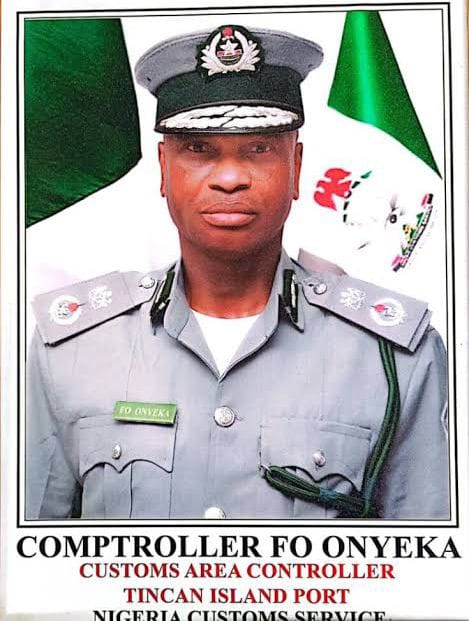
TICP Customs Launches Paperless Regime, Warns Against False Declarations
The Customs Area Controller of Tin Can Island Port Command of the Nigeria Customs Service (NCS), Comptroller Frank Onyeka, has launched a roadmap for the full implementation of a paperless regime at the command.
Onyeka disclosed this during a press briefing in Lagos, stating that the command was fully prepared for seamless digital operations ahead of the nationwide rollout scheduled for the second quarter of the year.
He described the engagement as the first in a series of consultations aimed at sensitising stakeholders on the strategies, operational framework and expectations under the new regime.
The controller commended the media for its constructive reportage since his assumption of office and sought continued collaboration to ensure the success of the initiative.
Presenting the command’s performance report, Onyeka said the Tin Can Island Command generated ₦609 billion in revenue in 2025, describing it as the highest in the history of the command.
He added that revenue collection rose from ₦116 billion recorded in January of the previous year to ₦145 billion in the corresponding period last month, representing an increase of over ₦29.9 billion.
Onyeka stated that his vision was to make the command known for trade efficiency, explaining that under the paperless regime, containers would be released without physical contact between Customs officers and clearing agents, provided declarations were accurate.
He credited the Comptroller-General of Customs, Bashir Adewale Adeniyi, for providing the leadership and strategic direction driving modernisation efforts across Customs formations nationwide.
The controller urged stakeholders to avoid false declarations and engage directly with the command to resolve concerns, emphasising that transparency and dialogue were essential to achieving efficient port operations.
He assured that consignments with clear scanning results and proper documentation would be released promptly, while those flagged by the risk management system would undergo physical examination, adding that the command would continue to collaborate with other agencies to reduce cargo dwell time and enhance port efficiency.
society
Love on Display: Katie Price and Lee Put On a Public Show of Affection

Love on Display: Katie Price and Lee Put On a Public Show of Affection
By George Omagbemi Sylvester | Published by SaharaWeeklyNG
British media personality Katie Price is once again at the center of tabloid and public attention after being photographed poolside with her new husband, Lee, in a display of affection that quickly circulated across entertainment platforms. The images, reportedly taken during a recent leisure outing at a private resort location in the United Kingdom, show the couple embracing and kissing beside a swimming pool, with Lee prominently displaying a tattoo tribute dedicated to Price.
The photographs, which surfaced in mid-February 2026 through British tabloid outlets, depict the couple appearing relaxed and affectionate. Lee, whose full name has been reported in sections of the UK press but who largely maintains a lower public profile compared to his wife, lifted his arm to reveal a visible tattoo said to be in honor of Price and a gesture widely interpreted as a public affirmation of their relationship.
What happened was straightforward but symbolically charged: a public display of affection between newlyweds, amplified by Price’s longstanding celebrity status. Where it happened (poolside at what sources describe as a private holiday setting) underscores the blending of personal life and public spectacle that has long defined Price’s media journey. During a recent February getaway placed it squarely within ongoing tabloid interest surrounding her latest marriage. Price, 47 and her new husband Lee, whose visible tribute tattoo became the focal point of the moment.
Celebrity culture scholars argue that public figures such as Price operate within a media ecosystem where visibility sustains relevance. “Modern celebrity is performative intimacy,” explains Professor Graeme Turner, a media and cultural studies scholar known for his work on celebrity culture. “Public displays of affection are not merely private acts; they are communicative gestures that reinforce brand identity and narrative continuity.” In Price’s case, her romantic relationships have long been interwoven with her public persona.
Price first rose to prominence in the late 1990s under the glamour model moniker “Jordan,” before transitioning into reality television, publishing and business ventures. Her personal life (including previous marriages and high-profile relationships) has frequently generated headlines in the British press. This latest marriage continues that pattern of intense scrutiny.
The tattoo tribute displayed by Lee is particularly significant in celebrity symbolism. Body art dedicated to a partner is often perceived as a declaration of permanence. Dr. Chris Rojek, emeritus professor of sociology and an authority on fame and public identity, has observed that “celebrity relationships are sustained as much through symbolic reinforcement as through private commitment. Visible tokens (rings, tattoos, coordinated appearances) function as public assurances.” In this case, the tattoo serves not merely as personal expression but as a visual narrative device in an already highly mediated relationship.
How the moment unfolded (casually but conspicuously) reflects the dynamics of contemporary celebrity coverage. Photographs were reportedly captured either by paparazzi stationed nearby or shared through controlled media access, a common practice in the British entertainment industry. Within hours, the images were republished by multiple outlets, accompanied by commentary on Price’s relationship history and ongoing legal and financial challenges, issues that have previously placed her under intense public scrutiny.
Despite recurring controversy throughout her career, Price remains a resilient media figure. Communications analyst Mark Borkowski has previously remarked in interviews that “Katie Price understands publicity better than most. Whether by design or instinct, she maintains a feedback loop with the press that keeps her culturally visible.” The poolside photographs appear to fit squarely within that established pattern of managed exposure and reactive media amplification.
Critically, there is no indication of misconduct, public disturbance or controversy tied directly to the poolside display itself. It was, by all verified accounts, a consensual and celebratory expression of affection between married adults. The wider attention it has generated speaks less to the act and more to the individuals involved; particularly Price’s enduring position within British popular culture.
For global audiences, the episode illustrates a broader truth about contemporary fame: private milestones often become public commodities. The marriage of Katie Price and Lee (and the symbolic tattoo that now marks it) has become another chapter in a life lived persistently under the camera’s gaze.
As celebrity culture continues to blur boundaries between intimacy and publicity, moments like this poolside embrace are no longer trivial snapshots. They are narrative events, reinforcing identity, commitment and brand continuity in equal measure.
-

 celebrity radar - gossips6 months ago
celebrity radar - gossips6 months agoWhy Babangida’s Hilltop Home Became Nigeria’s Political “Mecca”
-

 society6 months ago
society6 months agoPower is a Loan, Not a Possession: The Sacred Duty of Planting People
-

 news6 months ago
news6 months agoTHE APPOINTMENT OF WASIU AYINDE BY THE FEDERAL GOVERNMENT AS AN AMBASSADOR SOUNDS EMBARRASSING
-

 society5 months ago
society5 months agoReligion: Africa’s Oldest Weapon of Enslavement and the Forgotten Truth

